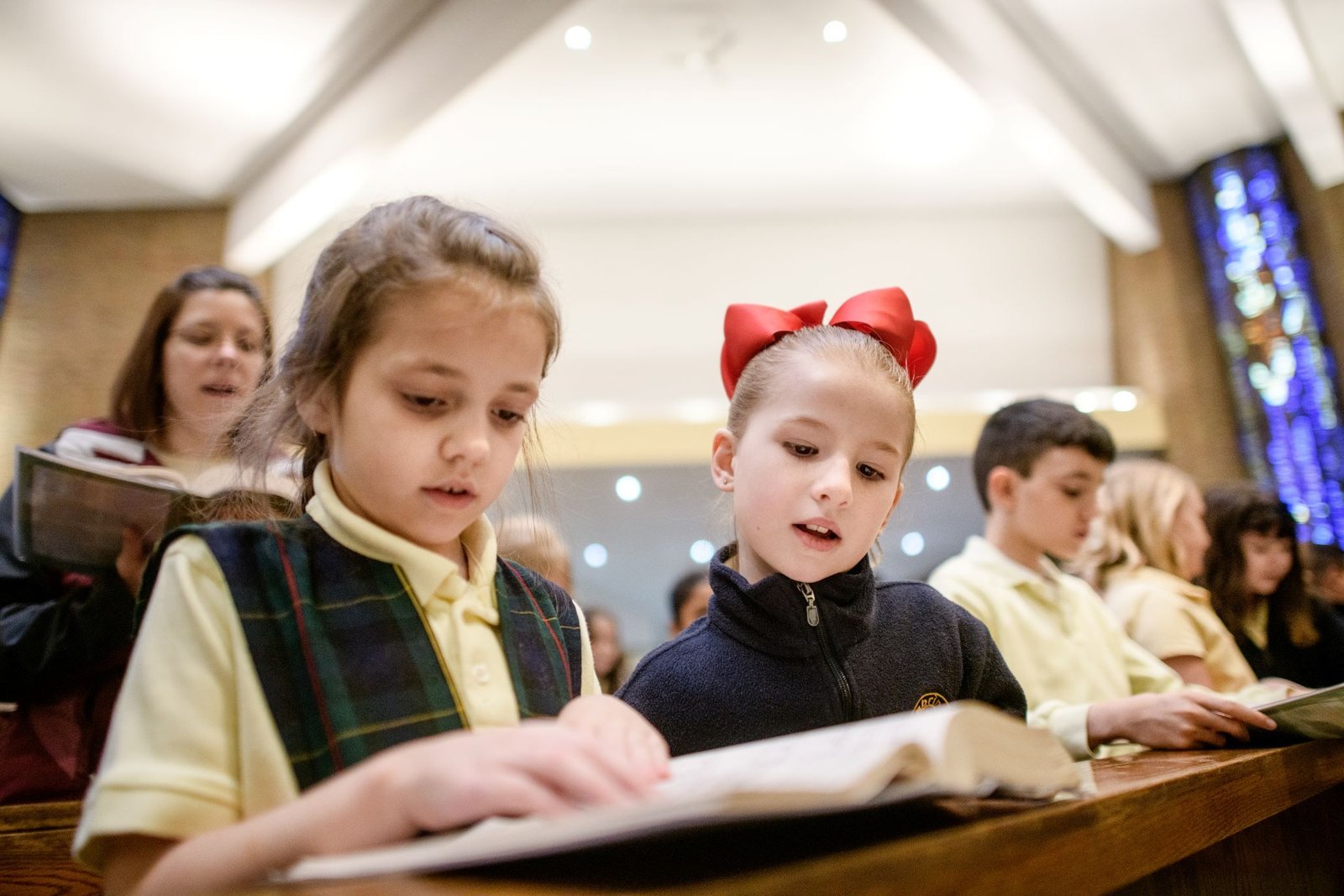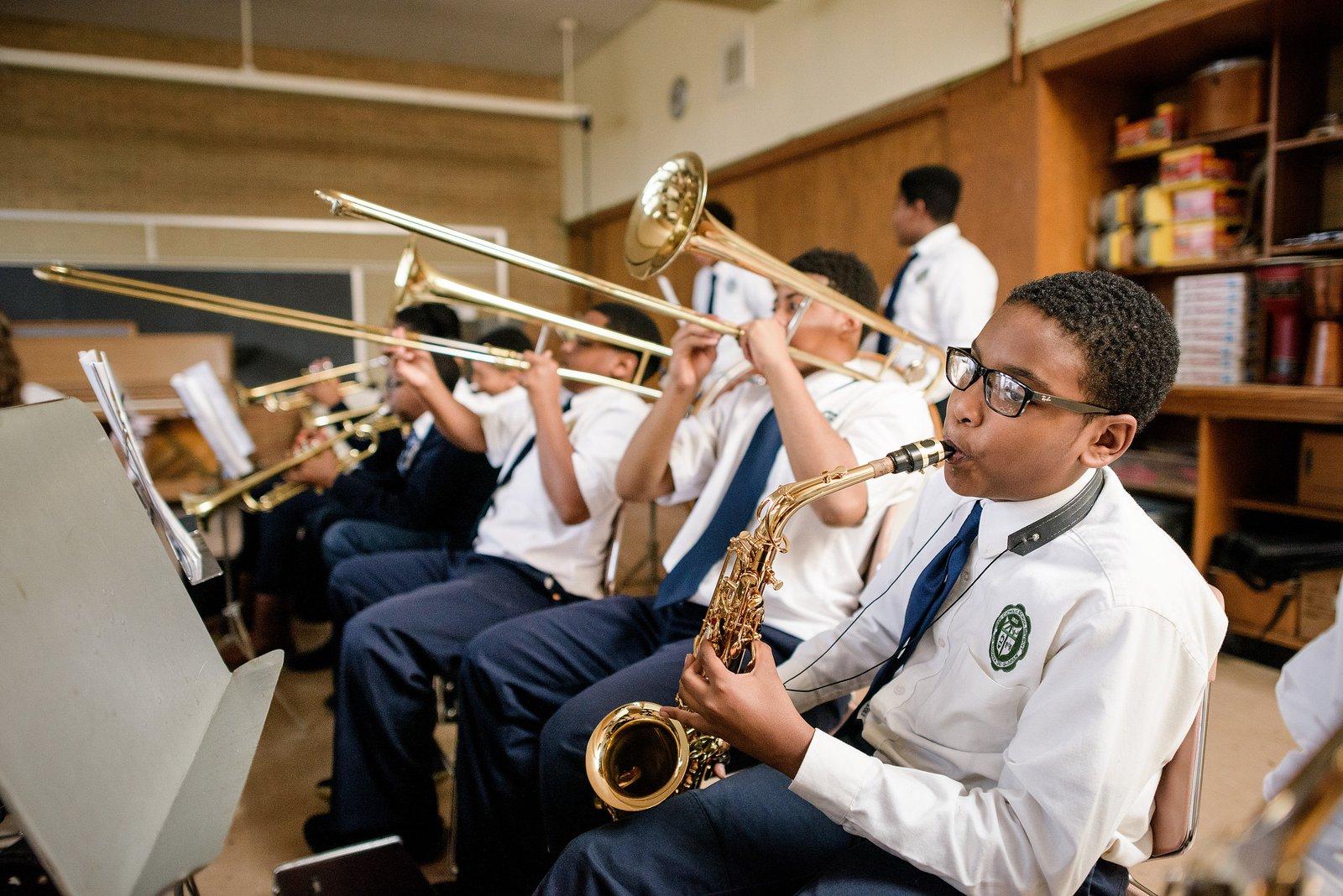Michigan Catholic Conference hopes scholarship-granting organizations could help families afford Catholic education
LANSING — Michigan Catholic public policy experts are hopeful that the nation's first federal K-12 scholarship tax credit will make it easier for Michigan families to afford Catholic and other nonpublic schools, as well as assist children attending public school with affording tutoring and other wrap-around services.
New federal law allowing for the creation of scholarship-granting organizations, to which taxpayers can contribute and claim a federal tax credit of up to $1,700 per taxpayer, could allow more families to access a Catholic education, said Paul Stankewitz, policy advocate for the Michigan Catholic Conference.
The scholarship-granting organizations (SGOs) can, in turn, grant scholarships to families making up to 300% of the area median gross income to cover academic expenses such as tuition, fees, academic tutoring, special needs services, books, supplies, uniforms and technology.
“This is a tax credit for people who donate to what are known as scholarship-granting organizations, so if you make a donation to an SGO, you get a tax credit as a donor,” Stankewitz told Detroit Catholic. “The SGO, in turn, would give out scholarships to students at non-public schools if a family so wishes to send their child to a non-public school.”

Stankewitz emphasized the program is not a voucher program, but a tax credit program that allows taxpayers to direct their tax payments to where they see fit to support education.
“This program will benefit students who attend public schools and nonpublic schools,” Stankewitz said. “Families whose income is 300% above the poverty line would qualify for a scholarship that SGO could give you to pay for tuition at a private school. At a public school, you could use it for tutoring, school supplies, textbooks or a home computer or wrap-around support outside the classroom.”
The SGO established to facilitate the scholarship money must be 501(c)3s that serve 10 students across multiple school, a SGO can't be established to serve just one school. Furthermore, donors can't designate individual students to receive the funds, but could designate the school they wish the funds directed towards.
The SGOs must spend 90% of income on qualified scholarships and must have accounts exclusive for qualified contributions from taxpayers. The contributions may not be earmarked for specific students; however, siblings of students who have received scholarships in the past are prioritized.

“An SGO must serve more than 10 kids and be at more than one school, so you can’t self-designate a particular school like, say, Divine Child or Gesu. It would have to be a collection of schools,” Stankewitz said.
States must opt into the program by Jan. 1, 2027, so how — and if — Michigan might participate is yet to be determined, Stankewitz said.
Michigan’s constitution currently prohibits vouchers or tax subsidies to support students attending a nonpublic school. However, federal funding and tax credits are a different story, Stankewitz said.
“The state constitution mentions tax credits and vouchers and deductions, but that’s regarding state funding, not federal funding,” Stankewitz said. “The U.S. Supreme Court ruled some years ago that in the case of tax credits, it never was government money. Instead, this is a way to encourage private investment in education in community schools, whether they’re public or nonpublic.”

Stankewitz said the implementation of SGOs in the state would allow Catholic school supporters more options to support Catholic education and create greater access to Catholic education for low- and medium-income families.
“This is certainly going to be helpful,” Stankewitz said. “300% of the poverty line takes in a large chunk of the middle class. So this will help families with paying for tuition at a non-public school or helping a child attending public school who requires additional tutoring — this will help with those expenses.
“Families who receive these scholarships will be able to use them in whatever way they think is best,” Stankewitz said. “It helps families that are struggling to afford our Catholic schools to stay there, and it helps public school families with the assistance their child needs for their education as well.”











